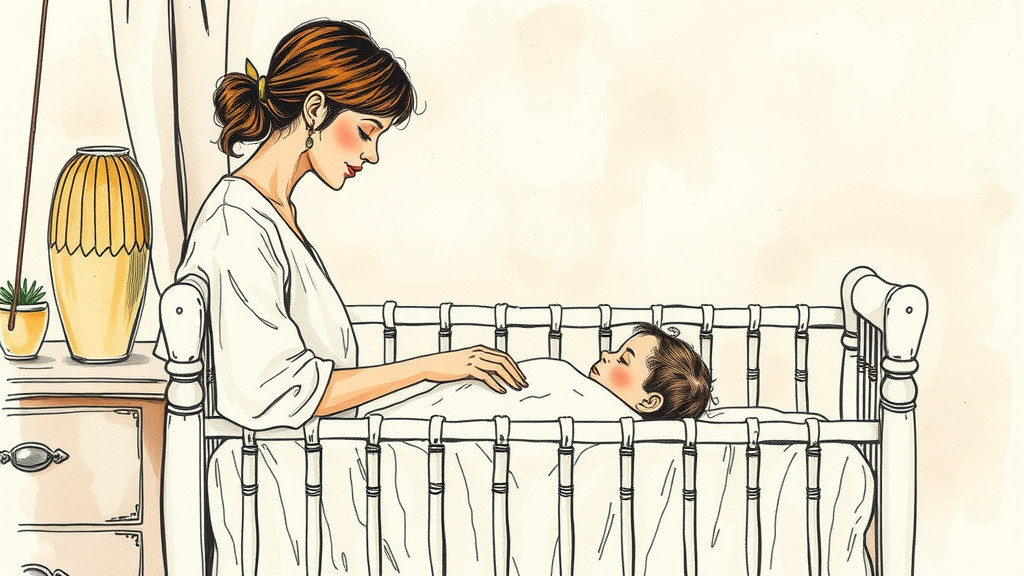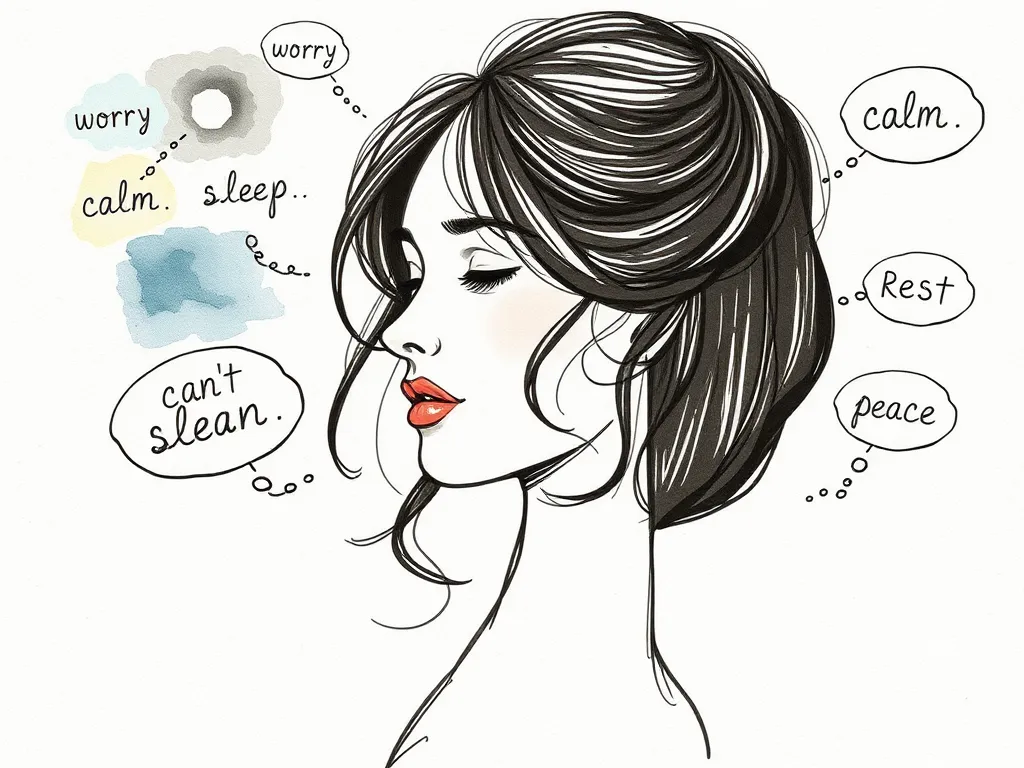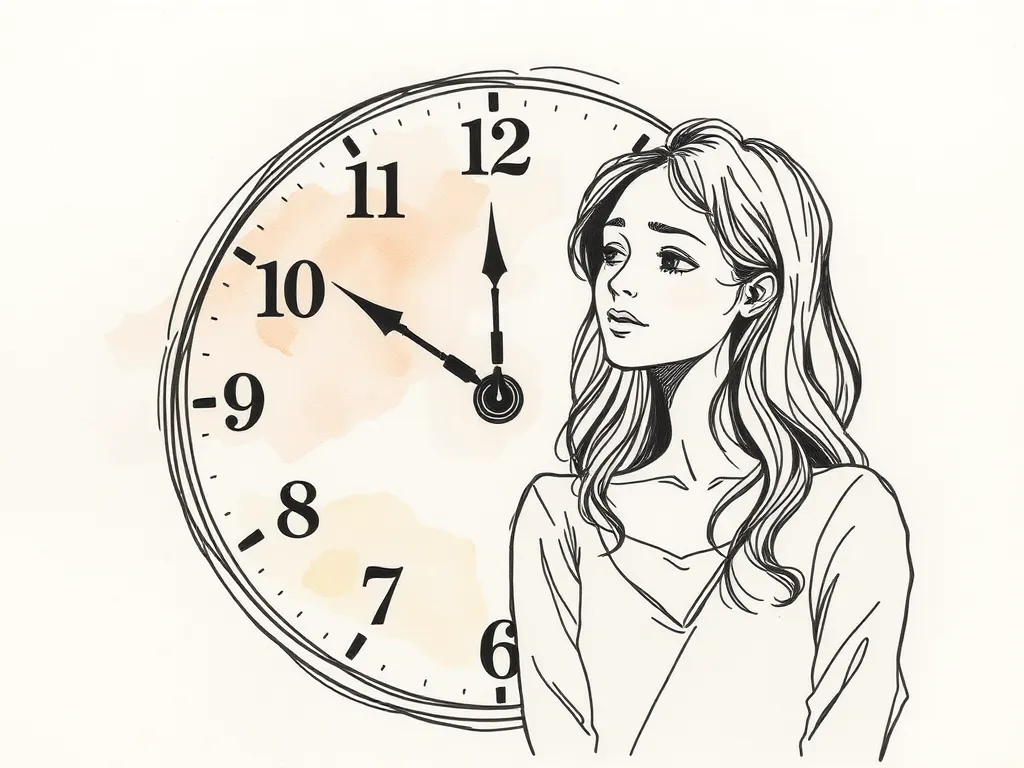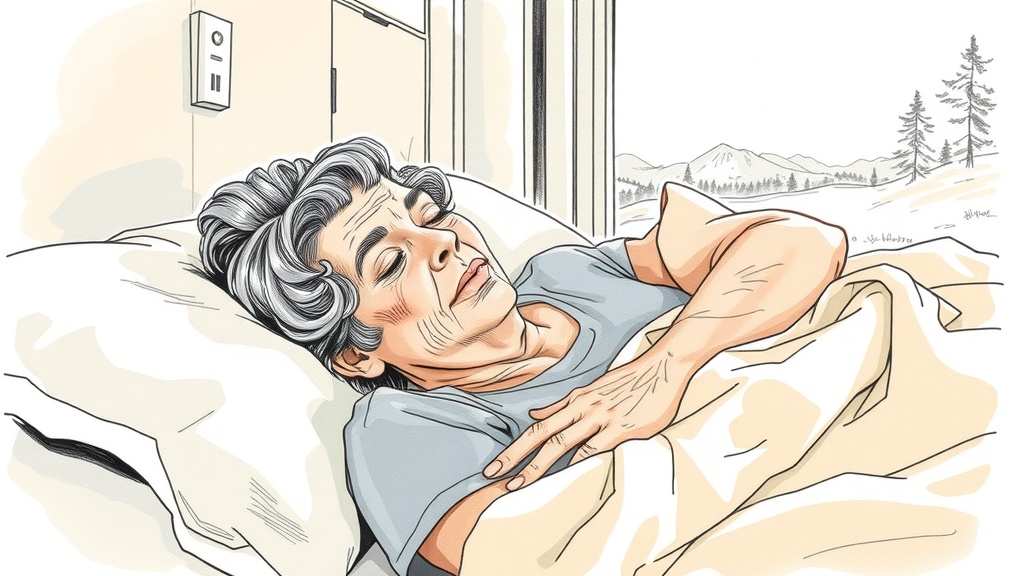· Don Schmidt · Guides · 8 min read
The Ultimate Guide to CBT-I for New Moms: Reclaiming Your Sleep
New moms, discover CBT-I a drug-free, effective sleep therapy to combat insomnia and reclaim restful nights. Your ultimate guide to better sleep starts here!

The Motherhood Sleep Dilemma: Finding Rest with CBT-I
Becoming a new mom is a journey filled with unparalleled joy, love, and unfortunately for many, profound sleep deprivation. The constant demands of a newborn, coupled with hormonal shifts and the sheer overwhelm of new responsibilities, can turn restful nights into a distant memory. While common advice often includes “sleep when the baby sleeps,” for many new mothers, the ability to fall asleep, stay asleep, or return to sleep after a feeding becomes a significant struggle, leading to chronic insomnia. This isn’t just about being tired; it’s about compromised well-being, increased stress, and a diminished capacity to enjoy motherhood.
But there’s hope, and it doesn’t involve medication or quick fixes. Cognitive Behavioral Therapy for Insomnia, or CBT-I, offers a powerful, evidence-based, and drug-free solution. It’s a sleep therapy that addresses the root causes of insomnia, helping new moms reclaim their nights and their peace of mind.
What Exactly is CBT-I?
Cognitive Behavioral Therapy for Insomnia (CBTI) is a structured program that helps you identify and replace the thoughts and behaviors that prevent you from sleeping well with habits that promote sound sleep. Unlike sleeping pills, which offer a temporary solution, CBT-I provides lasting strategies. It’s considered the gold standard for insomnia treatment due to its high success rates and sustainable results.
At its core, CBT-I focuses on two main aspects:
- Cognitive: Addressing the racing thoughts, worries, and misconceptions about sleep that keep you awake.
- Behavioral: Changing the habits and routines that interfere with your ability to sleep.
For a deeper dive into the specifics of this powerful approach, you can learn more about what is CBT-I and other sleep therapy treatments.
Why Is CBT-I Ideal for New Moms?
For new mothers, the appeal of drug free sleep treatment is immense. Concerns about medication transfer during breastfeeding, potential side effects, or simply the desire for a natural, sustainable approach make CBT-I an incredibly attractive option. Here’s why it stands out:
- No Medication Risks: You can improve your sleep without worrying about drug interactions, side effects, or impact on your baby, especially if breastfeeding.
- Sustainable Results: CBT-I teaches you skills for life. Once you’ve learned the principles, you have tools to manage future sleep disturbances.
- Addresses Root Causes: Instead of masking symptoms, CBT-I tackles the underlying behavioral and cognitive factors contributing to your insomnia.
- Empowering: It puts you in control of your sleep, providing strategies you can implement even amidst the unpredictable schedule of a newborn.
- Improves Well-being: Better sleep directly translates to improved mood, energy levels, patience, and overall mental health, crucial for new parents.
Key Components of CBT-I and How They Apply to New Parenthood
CBT-I involves several core components, each playing a vital role in retraining your brain and body for better sleep. While the exact application might need slight adaptation for the unique demands of new motherhood, the principles remain steadfast.
1. Sleep Restriction (or Sleep Compression)
This sounds counterintuitive, especially when you’re already sleep-deprived, but it’s one of the most effective components. The goal isn’t to restrict total sleep time but to restrict the time spent in bed awake. By reducing the time you spend tossing and turning, you build up your sleep drive, making you more tired and promoting more consolidated, efficient sleep during the hours you are in bed.
- For New Moms: This needs careful adaptation. Instead of a rigid sleep window, it might mean focusing on getting out of bed when baby is settled, rather than lying awake, and gradually increasing time in bed as sleep efficiency improves. It’s less about absolute hours and more about associating your bed with sleep.
2. Stimulus Control Therapy
This component aims to break the unhealthy association between your bed (and bedroom) and wakefulness. The bed should be a cue for sleep and sex only.
Guidelines:
- Go to bed only when sleepy.
- If you can’t fall asleep within 20 minutes, get out of bed and do something calming in another room until you feel sleepy again.
- Wake up at the same time every day, regardless of how much you slept.
- Avoid napping (or limit to short, strategic naps if absolutely necessary to function).
- Use the bed only for sleep and sex. No reading, watching TV, eating, or worrying in bed.
For New Moms: The “wake up at the same time” rule can be tough with nighttime feedings. Focus on consistency when possible, and ensure your bedroom is truly a sanctuary for sleep, even if your sleep is fragmented.
3. Cognitive Restructuring

This involves identifying and challenging negative thoughts and worries about sleep that contribute to insomnia. Are you catastrophizing about lack of sleep? Do you have unrealistic expectations about sleep with a newborn?
- Techniques:
- Identify “sleep thoughts” that cause anxiety (e.g., “I’ll never sleep again,” “I can’t cope if I don’t get 8 hours”).
- Challenge these thoughts with more realistic and helpful ones (e.g., “It’s normal to have fragmented sleep with a baby, and I can manage,” “Even short bursts of sleep can be restorative”).
- Practice mindfulness and acceptance.
4. Sleep Hygiene Education
This covers general habits that promote good sleep. While crucial, sleep hygiene alone is often not enough to treat chronic insomnia, but it forms a vital foundation.
Examples:
- Maintain a dark, quiet, and cool bedroom.
- Avoid caffeine and heavy meals close to bedtime.
- Limit screen time before bed.
- Establish a relaxing bedtime routine.
For New Moms: These principles still apply, even if a baby’s cries disrupt them. Creating a calming pre-bed routine for yourself (even 15 minutes) can make a big difference.
5. Relaxation Techniques
Learning to relax and calm your mind and body can significantly improve your ability to fall asleep.
Techniques: Deep breathing exercises, progressive muscle relaxation, guided imagery, or meditation.
For New Moms: These techniques are especially valuable for managing the stress and anxiety that often accompany new motherhood. Even short bursts of these practices can offer relief.

Implementing CBT-I at Home as a New Mom
While working with a CBT-I therapist is often recommended for personalized guidance, many principles can be adapted for self-help. The key is consistency and realistic expectations. Your sleep will still be interrupted by your baby, but CBT-I helps you maximize the quality and quantity of sleep you get around those interruptions.
- Prioritize Sleep: Treat your sleep as a critical component of your postpartum recovery and mental health.
- Communicate with Partner/Support System: Enlist help for baby care during designated sleep windows or to allow you to implement stimulus control.
- Be Patient: Changes take time. It’s a process of retraining your brain.
- Seek Professional Help: If you’re struggling to implement CBT-I on your own, or if your insomnia is severe, a therapist specializing in
sleep therapycan provide tailored support and adaptations for your unique situation.
The Journey to Better Sleep: A Sustainable Path
Embracing CBT-I as a new mom is an investment in your health, your happiness, and your ability to be the best parent you can be. It’s not about achieving perfect, uninterrupted sleep immediately – which is often unrealistic with a newborn – but about building resilience, improving sleep efficiency, and developing coping mechanisms for fragmented nights. By addressing the cognitive and behavioral factors contributing to your insomnia, you’re not just treating a symptom; you’re cultivating healthier sleep habits for life. This drug free sleep treatment offers a sustainable path toward reclaiming restful nights and thriving in your new role.
Frequently Asked Questions About CBT-I for New Moms
Q1: Is CBT-I safe while breastfeeding?
A1: Yes, absolutely. CBT-I is a non-pharmacological approach, meaning it does not involve any medications. This makes it an incredibly safe and highly recommended sleep therapy option for breastfeeding mothers who want to avoid any potential transfer of drugs to their baby.
Q2: How long does it take for CBT-I to work for new moms?
A2: While individual results vary, many people experience noticeable improvements within 4-6 weeks of consistent practice. For new moms, who often have fragmented sleep due to baby’s needs, progress might feel gradual, but significant positive shifts in sleep efficiency and quality are common within 8-12 weeks.
Q3: Can I do CBT-I on my own, or do I need a therapist?
A3: While self-help resources and apps are available, working with a therapist specializing in CBTI is generally recommended, especially for new moms. A therapist can provide personalized guidance, help adapt strategies to your unique baby schedule, and offer support to overcome challenges, making the process more effective.
Q4: What if I only get a few hours of sleep due to the baby? How does sleep restriction apply?
A4: Sleep restriction needs careful adaptation for new moms. It’s not about getting less sleep overall, but about ensuring the time you are in bed is spent sleeping effectively. A therapist can help you design a modified sleep schedule that accounts for baby’s wake-ups, focusing on consolidating sleep when opportunities arise rather than rigidly restricting total hours. The goal is to build sleep drive when you can sleep.
Q5: Is CBT-I a permanent solution for insomnia?
A5: CBT-I teaches you skills and strategies that can provide long-term relief from insomnia. While stressful life events (like having a baby!) can sometimes trigger temporary sleep difficulties, the tools you gain from CBT-I empower you to manage these challenges effectively, making it a highly sustainable solution for maintaining good sleep hygiene throughout your life.
Assess Your Sleep Quality Today
Take our My Sleep Health Score assessment to get personalized insights about your sleep patterns and discover how CBT-I can help you achieve better sleep.

Don Schmidt
15+ years of experience in sleep therapy and Cognitive Behavioral Therapy for Insomnia (CBT-I). Passionate about connecting individuals struggling with sleep disorders to evidence-based, non-medical treatment solutions. Author of hundreds of articles and comprehensive guides on sleep health, CBT-I techniques, and overcoming insomnia. When not helping clients achieve better sleep, you can find me hiking with my family and dogs or enjoying a good book.
Ready to connect with a provider?
Allow us to connect you with a provider who can help.



